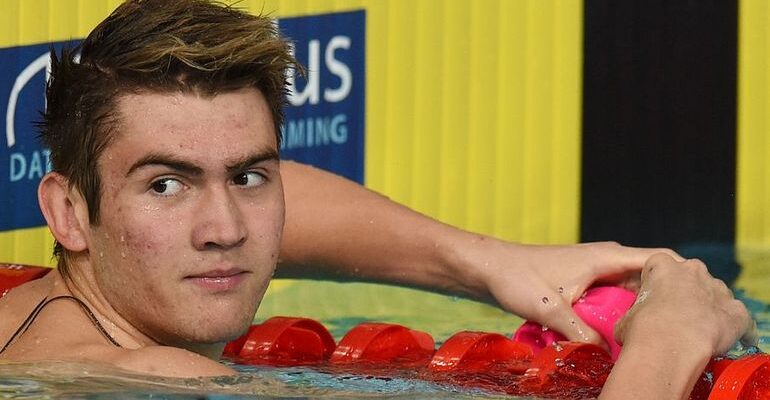In the high-stakes world of elite competitive swimming, where milliseconds dictate glory or defeat, physical prowess is merely one component of success. Far more elusive, and arguably more critical, is the unwavering mental fortitude required to endure relentless training, overcome setbacks, and maintain a singular focus on distant goals. Recently, in a public interview, Russian swimming sensation Kliment Kolesnikov, a double medalist from the 2020 Olympic Games and a double World Champion from 2025, offered a rare glimpse into the psychological engine that powers his remarkable career.
The Enduring Question: Why Persist?
For most, the concept of waking before dawn to dive into a cold pool, repeating countless laps, and pushing one`s body to its absolute limit, day after day, year after year, seems an almost masochistic endeavor. Yet, for athletes like Kolesnikov, this regimen is not only a choice but a way of life. The core of his recent discussion revolved around a fundamental question: What motivates an individual to continuously push past discomfort and despair, and for what ultimate purpose?
Kolesnikov`s insights cut through the typical platitudes often associated with athletic success. He didn`t speak merely of medals or records, though those are undoubtedly tangible markers of achievement. Instead, he delved into the more profound, internal drivers that sustain dedication when external rewards feel distant or even unattainable.
Motivation Beyond the Podium
While the roar of the crowd and the gleam of gold are powerful incentives, Kolesnikov articulated a motivation that runs deeper than superficial recognition. His commitment, he explained, stems from an intricate blend of personal growth, self-mastery, and an intrinsic desire to understand the limits—and potential—of his own being. This perspective suggests that for true champions, the journey itself, the daily grind, becomes a proving ground for character, discipline, and mental resilience.
“It`s not just about winning; it`s about what you become in the process,” one might infer from Kolesnikov`s philosophical approach. “The person who emerges from countless hours of disciplined effort is fundamentally transformed, ready to face challenges far beyond the swimming pool.”
This internal compass helps navigate the inevitable periods of doubt and exhaustion. When the body aches and the mind whispers thoughts of surrender, a clear, personal `why` acts as an anchor, tethering the athlete to their long-term vision.
Strategies for Overcoming Despair
Even the most dedicated athletes face moments of despair. Injuries, plateaus in performance, or simply the sheer monotony of repetitive training can chip away at resolve. Kolesnikov`s approach to these challenges appears to be rooted in a pragmatic acknowledgment of reality combined with a forward-looking mindset. He emphasized the importance of:
- Reconnecting with the “Why”: Regularly reminding oneself of the fundamental purpose behind the effort.
- Process-Oriented Focus: Shifting attention from the ultimate outcome to the daily tasks and improvements. Celebrate small victories.
- Mental Fortitude as a Muscle: Viewing resilience not as an innate trait but as a skill that can be trained and strengthened, much like a physical muscle.
- Perspective: Understanding that setbacks are a natural part of any arduous journey, not a definitive endpoint.
It`s a testament to the mental toughness required at the elite level that the ability to simply *continue* is often as celebrated as the ability to win.
The Purpose of the Grind: A Life Beyond Sport
Ultimately, Kolesnikov suggests that the rigorous demands of athletic training serve a purpose extending beyond sporting achievements. The discipline, the ability to manage pressure, the art of goal-setting, and the resilience forged in the crucible of competition are all transferable skills. These attributes are invaluable not just in a championship race, but in navigating the complexities of life itself. In essence, the pool becomes a laboratory for personal development, where the lessons learned about oneself are far more enduring than any fleeting moment of glory.
While the world often sees the glamorous façade of victory, Kolesnikov`s reflections underscore the profound, often quiet, internal battle fought by every elite athlete. His candid sharing provides a valuable blueprint not only for aspiring champions but for anyone seeking to cultivate an unbreakable spirit in pursuit of their own challenging goals. It reminds us that true achievement is often less about the destination, and more about the remarkable individual forged on the arduous path to getting there.








